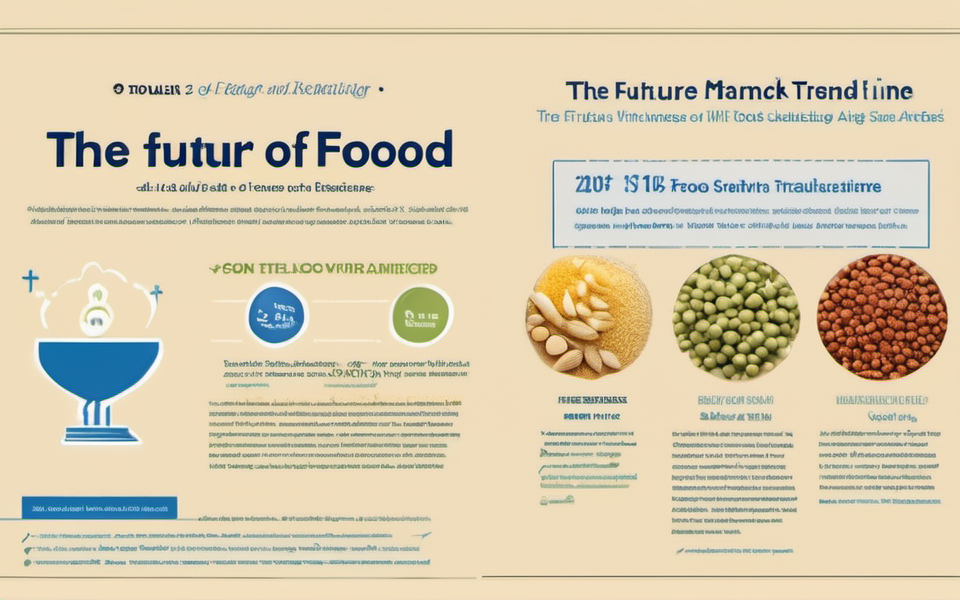Forget everything you think you know about food. The future is here, and it’s green, it’s ethical, and it’s sustainable. Get ready for a food revolution – one where every bite reflects a commitment to our planet. You might be surprised to learn just how dramatically things are changing in the sustainable agriculture sector, from farm-to-table movements to revolutionary technology. But before we dive into the innovations shaping our plates, let’s get down to brass tacks – the regulations that are driving the shift towards a more mindful approach to food.
Regulations Redefining the Landscape: Embracing Sustainability
Imagine a future where every meal is powered by ethical, responsible practices. It’s no longer a dream – it’s a reality being shaped by a wave of groundbreaking regulations. We’re talking about legislation that goes beyond mere talk; it puts teeth into the principles of sustainability.
Embracing Biodiversity and Ethical Farming Practices
We’re seeing a powerful surge of agricultural policies focused on promoting biodiversity. Imagine your grocery store shelves bursting with an abundance of locally grown, heirloom varieties instead of just the same handful of mass-produced crops. These regulations are paving the way for a more diverse, resilient, and ultimately tastier food system. The emphasis on organic farming practices ensures the soil is revitalized instead of depleted, and animals are treated humanely, leading to better welfare and healthier, more flavorful products.
Building Resilient Communities:
This movement is also about community empowerment. Regulations like farm-to-table initiatives help build local food systems that provide food security and economic opportunities for smaller farmers. These policies are building strong, self-sufficient communities where the connection between food and the environment is valued. Think of it as a win-win for farmers, consumers, and the planet.
Embracing Technology for Sustainable Outcomes:
The future of food doesn’t stop with legislation. Technology is also playing a pivotal role in building a more sustainable food system. The advancements in precision agriculture and agricultural technology are allowing us to farm smarter, not harder. These innovations use data to optimize everything from irrigation to pest management, minimizing waste and resource usage.
This isn’t just about efficiency – it’s about improving our food’s quality. We’re talking about tools that help us trace the journey of food, from the farm to your table. Think of it as building a bridge between producers and consumers – one based on transparency, accountability, and an unwavering commitment to the farm-to-table experience.
The Emerging Market Trends: Shaping the Future of Food
Now that we’ve explored the regulatory landscape, let’s shift our focus to the market trends that are reshaping the very essence of how we produce and consume food.
The Power of Consumer Demand:
At the heart of this revolution lies the informed consumer. Today’s consumers are more discerning than ever before, driven by a powerful desire for ethically sourced, sustainable food. They’re willing to invest in quality over quantity – demanding products that reflect a commitment to environmental and social responsibility. This shift in consumer values is reshaping the food market, creating new demand for:
- Organic Produce and Meat: Consumers are choosing organic products as they prioritize both health and environmental sustainability.
- Locally-Sourced Products: The local food movement is flourishing as people value fresher food produced within their communities.
- Sustainable Seafood: More and more consumers are becoming aware of the importance of sustainable seafood and are choosing seafood that is certified as responsibly caught.
Reimagining Food Production:
These consumer trends are forcing industries to adapt. We’re seeing an emergence of:
- Vertical Farming: Imagine food being grown in towering structures, free from the limitations of traditional land-based agriculture. This revolutionary technique is boosting efficiency and minimizing environmental impact, especially in densely populated areas.
- Aquaculture and Alternative Proteins: As we grapple with increasing global populations, traditional meat production faces a sustainability challenge. Enter alternative proteins like insect-based products and lab-grown meat, which are paving the way for a more responsible approach to meeting future food demands.
- Regenerative Agriculture Practices: It’s about building a more resilient and healthy food system that’s built on nourishing the soil and promoting biodiversity.
Key Takeaways:
-
Regulations are driving the shift to a more sustainable food system. From prioritizing organic practices to farm-to-table initiatives, these rules are fostering a greater emphasis on biodiversity and ethical sourcing.
-
Technology is playing a vital role in enhancing efficiency and transparency. Precision agriculture and farm-to-table traceability are changing the game by promoting sustainability, resource optimization, and improved food quality.
-
Consumer demand for sustainable food is at an all-time high. We’re seeing a surge in organic produce and meat demand, and consumers are embracing locally-sourced products to support their communities.
-
Emerging market trends are revolutionizing food production. Innovations like vertical farming, aquaculture, and alternative protein sources are leading us towards a more sustainable future of food.
It’s a thrilling time to be involved in the food industry. With changing regulations and an evolving consumer landscape, the future of food is incredibly bright – promising a healthier planet, healthier lives, and a delicious, responsible future for all. Let’s raise a glass to this revolution and enjoy the delicious ride.




